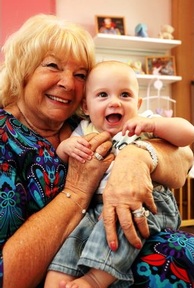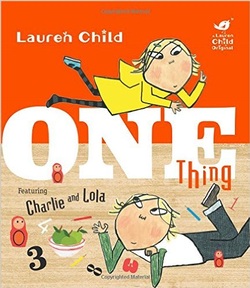Profile: Male nursery worker reveals how he faced sexism and prejudice working in the childcare sector
Mocked as ‘Jane’ by his childcare teachers and asked whether he would ‘be able to fit in as one of the girls’ at a job interview, John Warren has become used to the sexism that seems all too prevalent in the childcare sector.

He was the first man ever to have done the NNEB course at his college and “for the first six weeks, the course teachers thought it was really funny to call me Jane when they were doing the register”.
Being the only man on this female dominated course and the butt of the teachers’ jokes was hard in the beginning. “I cried every evening for the first few weeks. I had a good friend there who helped get me through it but I spent a lot of time crying into my pillow at home,” he admits.
This did happen many years ago and he says “things have improved since I started out but men still encounter prejudice” and men are still very much a minority in childcare as only two per cent of the early years workforce is male and this statistic has remained steady in the past decade, despite national and local recruitment campaigns aimed at men.
Mr Warren, who has worked in childcare for the past 30 years, has been used to battling against the notion that men shouldn’t work in childcare.
“I decided to work in the early years after doing a placement at a primary school in the nursery and reception class so I applied to college to an NNEB course.
“When I told the careers adviser I wanted to work in childcare he said ‘why do you want to do that, it is for girls’.
“But childcare was something I really wanted to do. I did a placement in a primary school and they were very accepting.”
At the time he did his NNEB course, every student was expected to do a placement in a special baby unit. “But they wouldn’t accept me because I am a man. At that time male midwives were a rarity as well.”
His first training placement in a nursery was very difficult.
“Everything I did was wrong. So if I put a jumper on the child the wrong way they would immediately say typical man, he doesn’t know what he is doing. Or if I was putting a girl’s hair in a ponytail they would say I did it funny. I was lucky though as the room leader was very protective of me.”
He also did a family placement and luckily “the mum was very forward thinking. She had twins and I really enjoyed it and because of that I decided working as a nanny was for me.”
On finishing his course, Mr Warren applied for 42 nanny jobs and didn’t get one interview.
Confused as to why he wasn’t getting anywhere, he went to the agency and asked them what the problem was and “they said the mothers didn’t want a man looking after their children”.
So he decided to look for work in a nursery. “The interview went well until the woman who would be my manager went off track and asked the question ‘would I fit in as one of the girls’ my response was to stand up and say if you want me to fit in as one of the girls then you need to employ a girl.”

June O’Sullivan, chief executive of the London Early Years Foundation (LEYF) recently launched the London Network for Men in Childcare, which aims to give support to men working in childcare and encourage more men to work in the early years sector.
She said: “Research shows there are huge benefits from having men in nurseries, such as providing male role models, eradicating gender stereotypes and helping fathers engage with their children.”
Children from single parent families can often miss out on a positive male role model and so men working in childcare can have a big impact here.
This is something Mr Warren has found. “A lot of the children at the nursery I was working in were on the child protection register and didn’t have a positive male role model in their lives. So I thought it was really beneficial for me to be there. I think having men working in a nursery gives the nursery a different dynamic.”
Mr Warren is currently early years regional manager for the south east of England for the nursery chain .
He has found the company to be extremely forward thinking and says: “kidsunlimited is fantastic but I have worked at nurseries where they have said we should have policy saying men shouldn’t be allowed to do the nappy changing. We have an excellent CEO here who listens to her staff. kidsunlimited has a good apprenticeship scheme and we have had some men coming through that route.”
He believes part of the reason “there is still so few men working in childcare is the pay and I think the pay has stayed low because there is this perception that women are natural at childcare and they don’t really need to be trained for it.”
He hopes the reforms proposed by the Government to have a more qualified workforce will attract more men into childcare.
“We do bring a different dynamic to childcare. I see children swarm to the male members of staff, the energy increases and children are engaged. I have carried out small research projects and seen the impact of allowing boys to be superheroes and how the views of male members of staff support this.

“In my reading I found that mothers speak less to their sons in the early years than they do their daughters. I am not saying our female colleagues do this but it is an interesting fact. This is not a battle with our female colleagues but a need for a joint effort to show that we can work well together.”
“In terms of advice for men wanting to go into childcare, I would say it is hard work and go into it with your eyes open. Things have improved since I started out but you will still encounter prejudice. Don’t be naïve and think everyone will love you as they won’t and some staff will find it hard to accept you working in childcare.”
Despite all the prejudice he has faced, he says: “I have worked in childcare for the past 30 years and it is the most rewarding career.”
Latest Profiles News
 03-Oct-17
Nursery founder reveals secrets to an 'outstanding' childcare career
03-Oct-17
Nursery founder reveals secrets to an 'outstanding' childcare career
 09-Feb-17
Children's writer and illustrator Raymond Briggs wins lifetime achievement award
09-Feb-17
Children's writer and illustrator Raymond Briggs wins lifetime achievement award
 16-Oct-15
Charlie and Lola author reveals why she chose a Montessori nursery for her daughter
16-Oct-15
Charlie and Lola author reveals why she chose a Montessori nursery for her daughter
 04-Feb-15
'Oral storytelling is one of the most important things you can do with a child', says children's author Emma Chichester Clark
04-Feb-15
'Oral storytelling is one of the most important things you can do with a child', says children's author Emma Chichester Clark
 16-Dec-14
Profile: 'We have never turned away a child with special educational needs,' says Kiddi Caru SENCO
16-Dec-14
Profile: 'We have never turned away a child with special educational needs,' says Kiddi Caru SENCO